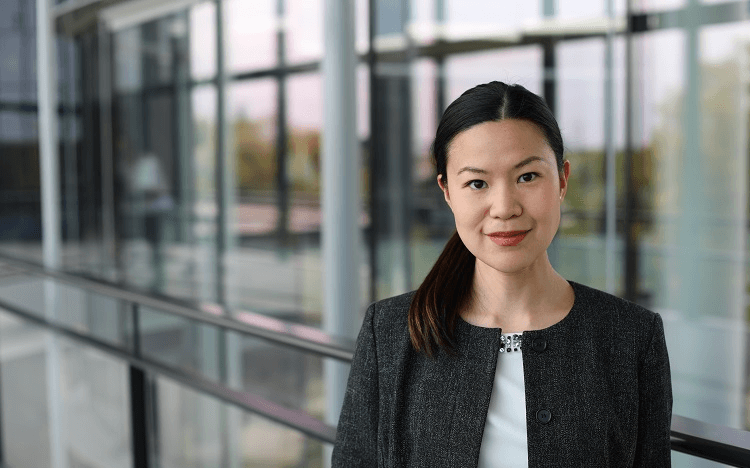They’ve all delivered speeches at Yale, to the delight of Yale School of Management MBA student, Clairine Runtung—she even got to shake Hilary Clinton’s hand.
“I can’t help but to feel like a sponge, absorbing knowledge, information, and inspiration from those around me in school,” she says.
The caliber of world speakers, as well as her personal development, are the two things that have stood out so far on the MBA, Clairine adds.
She says she chose Yale for three reasons: the mission of educating leaders in business and society, its small class size, and the integration between multiple sectors—public, private, and nonprofit.
The competitiveness of the program as well, is something that meets students from the off. For those who choose Yale for their MBA, a rigorous core semester is in store, Clairine explains, forcing you to question your intentions, values, and choices.
But how do they get there in the first place? How do you get into a top 20 business school?
How to approach the application
Clairine suggests starting applications early. By that, she says candidates should go into real depth with the schools they research.
“Don’t just do online, secondary research,” she says, “but most importantly, talk to current students, alumni, and even professors.
“There is no more insightful information that those coming from people who are already in or have been through the community.”
In her opinion, if you want to stand out, be authentic. Always remember, don’t tell the story you think the school admissions team wants to hear. Instead, Clairine advises, you should ask the uncomfortable questions to yourself early on in the process.
Who are you? What’s your story? What’s the real objective behind your pursuit of an MBA?
If you’re struggling to formulate coherent answers to those questions, call on help.
“Identify two or three people whom you trust to help you with the application process review.
“My application process was very challenging but rewarding. I remember spending time over the weekend writing, reviewing, editing, rewriting my essays and talking to either a current student or an alum.”
What are the challenges of applying to business school?
Clairine says they vary in three ways—time management, expectation management, and commitment to quality.
When she was applying for school Clairine was working as an investment associate for venture capital firm, Convergence Ventures.
She was balancing her application with full-time work for a team that was short-staffed—she was then asked to step up at the firm into an investment manager role, with more responsibility and longer hours.
“Working on my business school application pushed me to be efficient and effective at work. Setting my own expectation was also challenging and was something I learned throughout the process.
“Rather than beating myself too hard, it was pivotal to take a break once in a while, such that the application process didn’t turn into too much of a burden.”
You must focus, Clairine adds, and understand and be in tune with yourself. That commitment to quality, the final challenge, comes from reading draft essays over and over, she explains.
Why does the MBA matter
An MBA is a personal decision, something Clairine has always believed. That’s why you matter in the whole process.
“I had already had the intention to pursue a master’s degree one year after my college graduation,” Clairine recalls.
“As time went by and with the few jobs I had, the purpose became clearer: I wanted to gain skills the be a well-rounded leader ready to make an impact in the long run.”
How the MBA will enhance your career
Clairine is currently pursuing a career in management consulting, with her interest areas being education, nonprofit, and consumer products sustainability.
She says the Yale MBA has played big part in securing her a summer internship at Bain & Company, and the “rigorous” Consulting Club meetings were hands-on. Yale’s collaborative culture also played a part when company recruiting season came around.
“Coming from a nonprofit, asset management, and tech venture capital background, I had little knowledge about consulting,” she concludes.
“My MBA courses and classmates have equipped and supported me to receive the offer [from Bain], from looking at problems through different perspectives to remembering to pause when things get stressful.”







